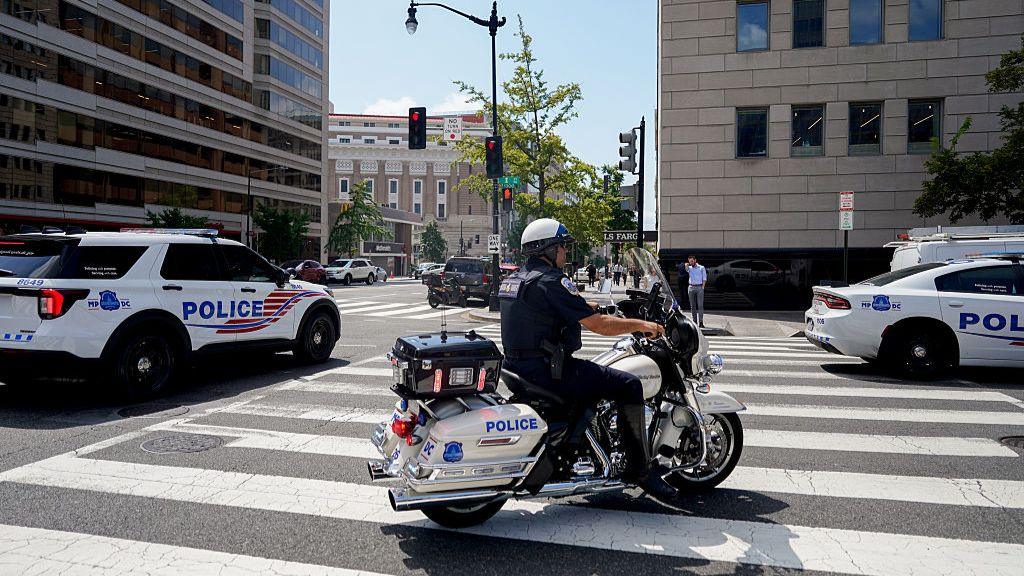Trump’s D.C. crime crackdown sparks fierce debate, legal battles, and a social media firestorm. Here’s what happened — and why it matters to all Americans

When former President Donald Trump announced an aggressive plan to tackle crime in the nation’s capital, Washington, D.C., the move instantly became one of the most polarizing political stories of 2025. Supporters hailed it as decisive leadership; critics called it an unnecessary, legally questionable power grab. The debate has erupted in Congress, city hall, and especially across social media — where partisan divides have turned into a digital shouting match.
Trump’s decision involves invoking a rarely used provision of the D.C. Home Rule Act to authorize a federal takeover of the D.C. Metropolitan Police Department. His plan deploys 800 National Guard troops to the city, aiming to crack down on what he has described as “out-of-control crime” and homelessness.
Crime Data Paints a Different Picture
According to D.C. government statistics, violent crime in the city is at a 30-year low. Homicides, robberies, and assaults have all dropped in the past year, though certain property crimes, such as car theft, have risen. Critics argue that Trump’s portrayal of the city as a dangerous war zone is misleading and politically motivated, especially in an election season where “law and order” messaging can be a powerful tool.
Democrats Push Back Hard
Prominent Democrats have openly challenged the move:
- Hillary Clinton accused Trump of “fear-mongering” and twisting facts to justify federal overreach.
- House Minority Leader Hakeem Jeffries labeled the move “deeply anti-democratic,” insisting D.C. residents deserve the right to govern their own city.
- Mayor Muriel Bowser called the decision “unlawful and unwanted” and vowed to fight it in court.
Civil rights advocates have joined in, warning that the move sets a dangerous precedent for eroding the already limited autonomy of D.C.
Social Media Turns Up the Heat
If the political statements were sharp, the online reaction was blistering.
Conservative influencers rallied behind Trump, accusing Democrats of ignoring public safety. On X (formerly Twitter), one user called Clinton a “massive liar,” while others accused Jeffries of “gaslighting” Americans about crime rates. Hashtags like #DCSafetyNow trended among Trump supporters, while #HandsOffDC was embraced by critics.
This online back-and-forth is shaping how much of the public perceives the issue — with many people’s understanding filtered entirely through memes, hashtags, and viral posts.
The Legal Question
At the center of the controversy is Trump’s use of Section 740 of the D.C. Home Rule Act. This rarely invoked provision allows presidential intervention in city affairs under certain emergency conditions.
Supporters argue it gives the president broad authority over the capital, particularly in cases involving national security or safety.
Opponents say the situation in D.C. doesn’t meet the legal standard for an emergency and predict the move could be struck down in court.
If the takeover extends beyond 30 days, Trump will need congressional approval — potentially setting up a legislative clash between the Republican-controlled House and the Democratic-led Senate.
Federalism vs. Local Control
This dispute goes beyond crime statistics. For many D.C. residents, it’s about self-governance. Washington, D.C., is not a state, and its local government is subject to federal oversight. City officials warn that the takeover could become a template for future presidents — from either party — to override local policies for political gain.
Political Chess or Public Safety?
Trump’s allies describe the move as bold leadership, stepping in where local officials have failed. His opponents see it as calculated political theater aimed at dominating headlines and energizing his base.
In reality, the move achieves both: it reinforces Trump’s “tough on crime” image and forces Democrats into a politically sensitive corner — opposing the plan risks being seen as soft on crime, while supporting it risks alienating their own supporters.
Media Framing
News coverage reflects deep partisan divides:
- Right-leaning outlets highlight isolated violent incidents to bolster Trump’s narrative.
- Left-leaning outlets focus on declining crime trends and the legal risks of federal overreach.
- Neutral reporting is harder to find, leaving many Americans with narratives that fit their existing political leanings.
What’s Next?
- Legal Battles – Lawsuits from the D.C. government and advocacy groups are expected within days.
- Congressional Hearings – Republicans may rally around Trump’s move; Democrats are likely to resist.
- Public Opinion – Polling on the takeover could influence campaign strategies ahead of the election.
- Impact on Residents – National Guard presence may reassure some while making others feel targeted.
Why This Matters Nationwide
While the immediate impact is on D.C., the precedent could affect cities across the country. The case raises questions about:
- Presidential authority over local matters
- The balance between public safety and democratic governance
- The role of media and social platforms in shaping political narratives
Final Thought: Whether you view Trump’s D.C. crime plan as decisive action or dangerous overreach, it’s a political flashpoint with consequences that could reach far beyond the capital. In the age of instant online reaction, the battle for public opinion is as intense as the policy fight itself — and both will shape America’s political future.